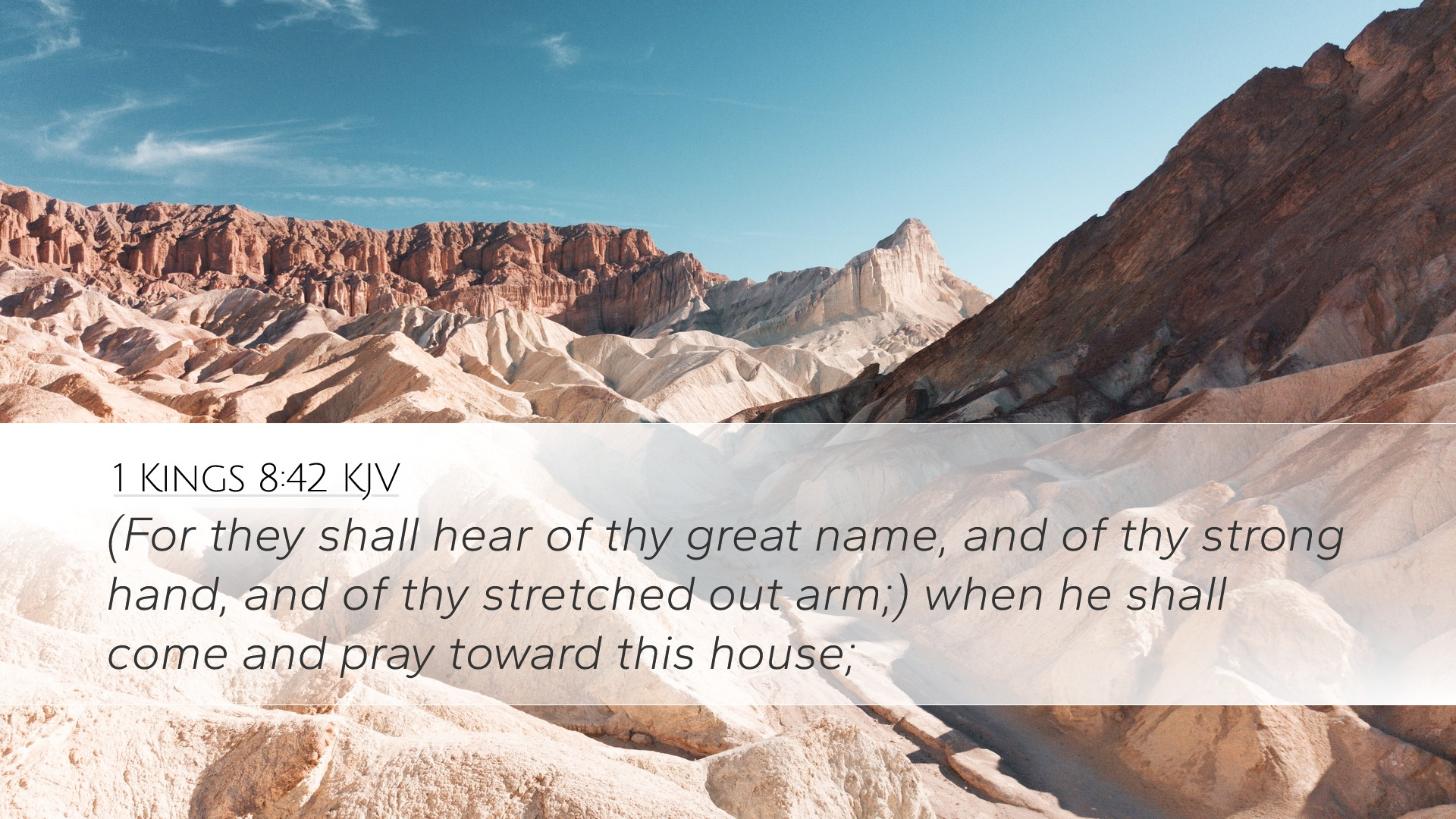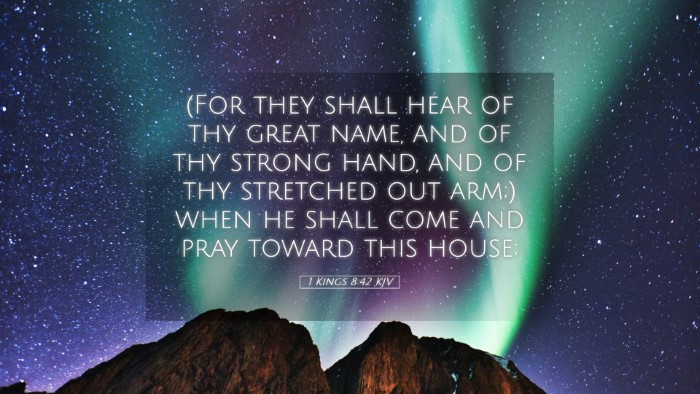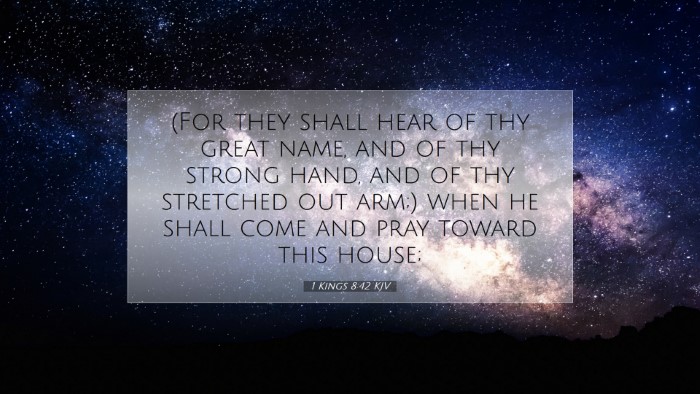Commentary on 1 Kings 8:42
Bible Verse: "For they will hear of your great name and your mighty hand and your outstretched arm, when he comes and prays toward this temple; then hear in heaven your dwelling place, and do according to all for which the foreigner calls to you, in order that all the peoples of the earth may know your name and fear you, as do your people Israel, and that they may know that this house which I have built is called by your name." (1 Kings 8:42)
Introduction
The passage from 1 Kings 8:42 is part of Solomon's prayer during the dedication of the temple. In this prayer, Solomon acknowledges the significance of the temple as a house of prayer for all nations. This verse, in particular, highlights the acknowledgment of God's sovereignty and the universal nature of His salvation.
The Context of the Verse
The event described takes place in Jerusalem at the completion and dedication of the temple. Solomon is interceding for both Israel and the foreign nations, recognizing that God's presence is not limited to Israel alone but extends to all humanity. The temple serves as a focal point where people, regardless of their nationality, can approach God.
Insights from Various Commentaries
Matthew Henry
Matthew Henry elaborates on the inclusiveness of God's grace demonstrated in this verse. He notes that Solomon's desire for foreigners to come and pray toward the temple signifies the ultimate evangelistic mission of Israel. Henry emphasizes that it shows the foresight of God’s plan to include Gentiles in His redemptive work. The prayer of a foreigner is as valid as that of the Israelites, indicating the temple’s universal accessibility.
Albert Barnes
Albert Barnes provides additional insight on the theological implications of the verse. He points out that the “great name” and “mighty hand” of God evoke reverence and awe. According to Barnes, the act of prayer toward the temple symbolizes a recognition of God's authority and power. He highlights the significance of the promise that God will respond, reinforcing the faith that has been placed in Him. This response is further underscored in the broader context when people acknowledge God’s sovereignty, leading to His intervention in their lives.
Adam Clarke
Adam Clarke takes a more practical approach, focusing on the conditions for answered prayer. He explains that the temple represents a sacred space and that those who come to it must do so in a spirit of humility and devotion. Clarke discusses the specific mention of foreigners and emphasizes the fact that God's mercy and grace are extended beyond Israel. This encapsulates the vision of a unified worship where all nations can come before God, highlighting the temple’s role as a microcosm of divine love for humanity.
Theological Implications
The verse has significant theological implications regarding the nature of God and His relationship with humanity. It illustrates God as not only the God of Israel but also as the God for all nations, supporting the wider Biblical narrative of God’s plan for redemption. The acknowledgment of God's "great name" and "mighty hand" also serves as a reminder of the reverence due to Him, linking worship with recognition of His attributes.
Cultural Relevance
In a modern context, the call for the foreigner to pray highlights the need for churches today to reflect a diverse and inclusive communal worship. It poses questions about the barriers that may still exist within congregations and challenges the notion of exclusivity. There is a strong emphasis on the need for Christian communities to embrace and welcome people from all backgrounds, echoing the intentionality behind Solomon’s prayer.
Practical Applications
For pastors, educators, and believers today, this verse presents multiple applications:
- Evangelism: It encourages outreach efforts to reach every nation and people group, reiterating the universal availability of God’s mercy.
- Inclusivity in Worship: It calls for churches to foster environments welcoming everyone, regardless of background, where they can encounter God.
- Prayer Practices: It emphasizes the importance of prayer, not just as an individual act but as a communal activity that acknowledges God’s sovereignty.
- The Role of the Church: It outlines the church's role as a representative of God’s kingdom on earth, serving as a bridge between diverse communities and the gospel.
Conclusion
1 Kings 8:42 stands as a profound declaration of God's character and purpose for all nations. The prayer of Solomon reflects a deep understanding of God's inclusive plan while emphasizing His might and sovereignty. As believers reflect on this verse, there is both a challenge and a call to action—to engage the world with the love of God that transcends cultural and national barriers.


